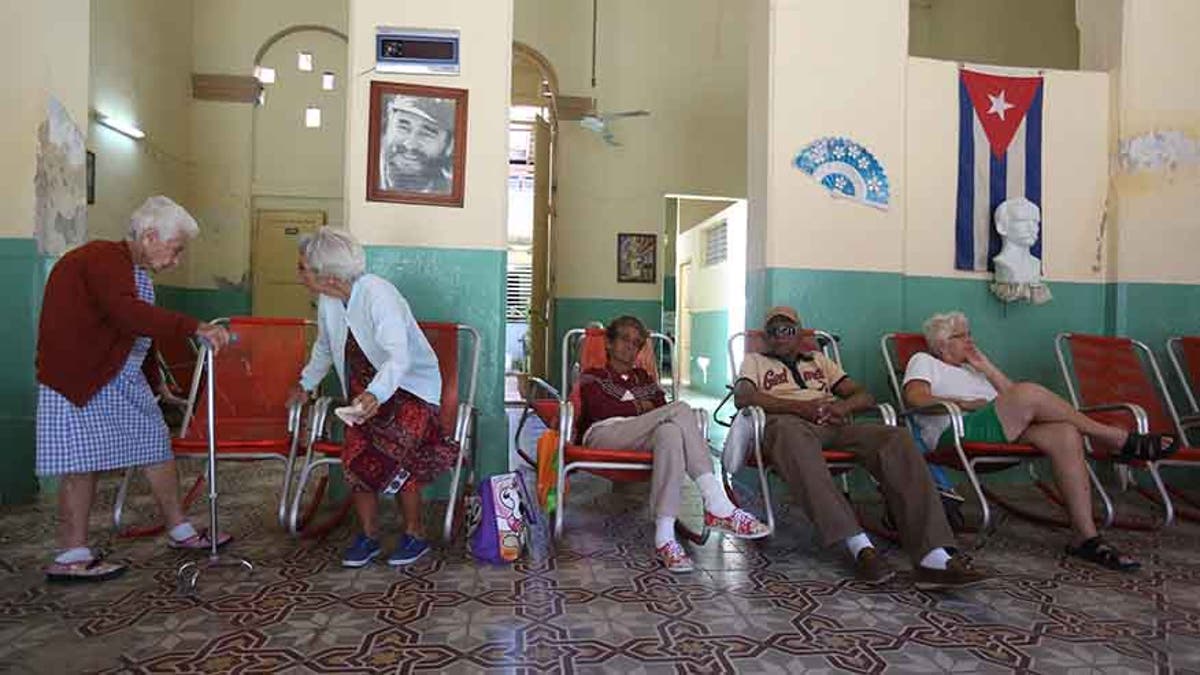
A retirement home in the Regla neighborhood in Havana, Cuba, November 29, 2016. (Reuters)
Cuba is home to some 2,000 people over 100 years old, according to data released by the Ministry of Public Health. In the first quarter of 2017, a total of 2,153 centennials lived in the island, of which more than 1,200 were women.
"Centennials now represent one of the fastest-growing segments of the population, with very special socioeconomic and health implications,” said Dr. Alberto Fernández Seco, head of the Ministry’s Department of the Older Adult, Social Assistance and Mental Health, to Juventud Rebelde, a leading newspaper in Cuba.
The communist nation is among the countries with the longest-lived people, with 19.8 percent of its population (2,219,784 people) aged 60 and over.
EXPEDIA ANNOUNCES ONLINE HOTEL BOOKINGS IN CUBA
He said that the reason for this a decline in fertility, but also a decrease in mortality for all ages. "In Cuba, access to health services is guaranteed free of charge as well as coverage of social security programs."
Dr. Fernandez Seco noted that most of Cuba’s centennials are not demented, disabled or dependent. “They are an example of successful population aging,” he said.
According to Juventud Rebelde, the data show that the majority of centennials were between 100 and 104 years old, white and lived with other relatives in the side of the country.
Dr. Fernández Seco pointed out that optimism, the desire to live and developing projects are the common denominators among those who live the longest. "The important thing is how we face different situations in life, how we overcome difficulties and how we are motivated," he said.
A team of researchers led by National Geographic journalist Dan Buettner, author of “The Secret of the Blue Zones,” has identified five places around the world with the highest life expectancy: the islands of Sardinia (Italy), Okinawa (Japan), Icaria (Greece), the Nicoya peninsula in Costa Rica, and the Loma Linda city in California.
They devoted themselves to studying the mysteries of longevity there and listed nine factors that the inhabitants of the blue zones had in common. Among them, they found, were daily physical activity, stop eating when the stomach is 80 percent full, belonging to a faith-based community and choosing social circles that support healthy behaviors.
“Research shows that smoking, obesity, happiness, and even loneliness are contagious,” Buettner wrote on his website.







































